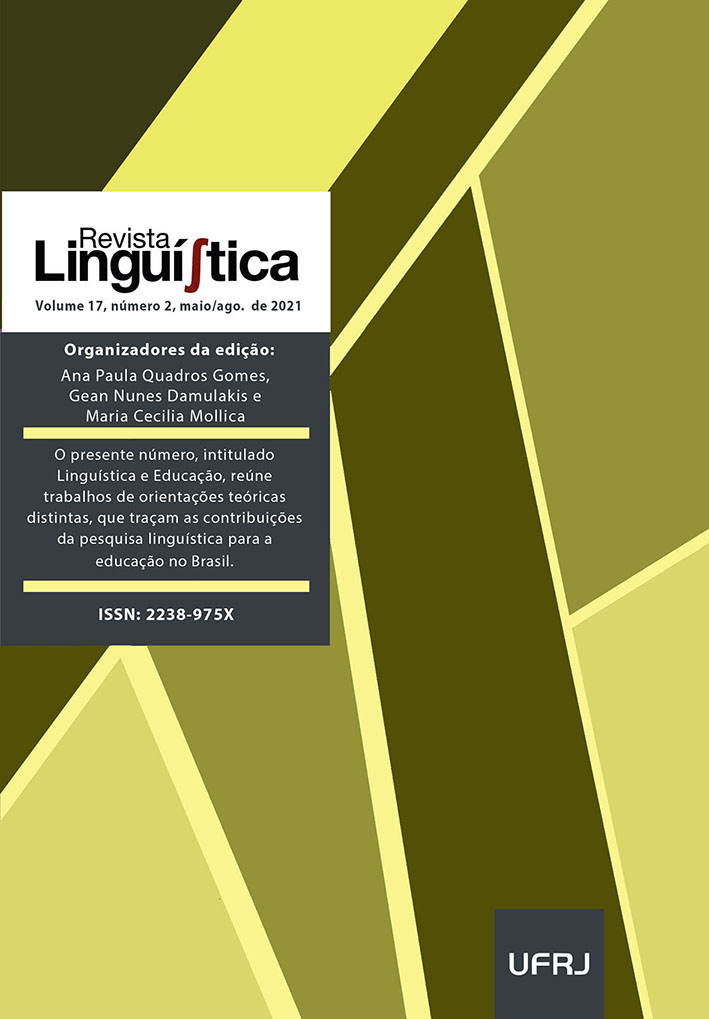Análise da eficácia de uma proposta Sociolinguística no ensino de pessoas com transtorno do espetro autista
DOI:
https://doi.org/10.31513/linguistica.2021.v17n2a40637Palavras-chave:
Transtorno do Espectro Autista, Gramática, Variação Linguística, Sociolinguística.Resumo
O objetivo dessa pesquisa é discutir sobre o ensino de gramática da língua portuguesa para pessoas com Transtorno do Espectro Autista (TEA). Segundo o DSM V (2014, p. 50), o Transtorno do Espectro Autista é um distúrbio neurológico que afeta a interação social, a linguagem e o processamento sensorial, e pode ser classificado como leve, moderado ou severo. Enquanto profissionais da educação, percebemos a dificuldade que professores encontram para trabalhar o ensino de língua em uma sala de aula com pessoas TEA, visto que o pensamento inflexível e as dificuldades de linguagem tornam esse processo mais difícil. Utilizando as bases da sociolinguística educacional e da pedagogia da variação linguística, nos debruçamos sobre uma proposta em específico: o ensino de gramática em três eixos (VIEIRA, 2017) – a fim de verificar a possibilidade ou não de aplicação dessa metodologia com pessoas TEA. As atividades serão preparadas levando em consideração suas dificuldades e habilidades.
Downloads
Downloads
Publicado
Edição
Seção
Licença
Autores que publicam na Revista Linguí∫tica concordam com os seguintes termos:
Os autores mantêm os direitos e cedem à revista o direito à primeira publicação, simultaneamente submetido a uma licença Creative Commons que permite o compartilhamento por terceiros com a devida menção ao autor e à primeira publicação pela Revista Linguí∫tica.
Os autores podem entrar em acordos contratuais adicionais e separados para a distribuição não exclusiva da versão publicada da obra (por exemplo, postá-la em um repositório institucional ou publicá-la em um livro), com o reconhecimento de sua publicação inicial na Revista Linguí∫tica.

A Revista Linguí∫tica é uma revista do Programa de Pós-Graduação em Linguística da UFRJ e se utiliza da Licença Creative Commons - Atribuição-NãoComercial 4.0 Internacional (CC-BY-NC)









